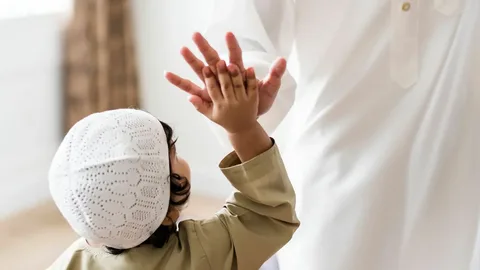Divorce, a topic often met with mixed emotions, holds a unique position in Islamic teachings. The Quran, as the holy scripture of Islam, provides profound insights into the complexities of marital relationships and the process of divorce. In this article on Arabian Tongue website, we will delve into the divorce in quran, addressing key themes such as the ethical considerations, cultural influences, and coping strategies post-divorce.
Divorce in Quran

The Quran explicitly addresses divorce, outlining the permissible grounds and conditions for dissolution. It emphasizes the importance of justice and fairness in the process, highlighting the ethical considerations that should guide individuals contemplating this decision.
Marriage in Islam is regarded as a sacred covenant, but divorce is acknowledged as a permissible option under certain circumstances. Understanding the Quranic perspective on divorce requires a nuanced exploration of the religious, cultural, and legal dimensions surrounding this significant life event.
The Complexity of Marriage in Quran
While the Quran upholds the sanctity of marriage, it also recognizes the challenges that couples may face. Factors contributing to the complexity of marital relationships are discussed, shedding light on the need for empathy and understanding within the marital union.
Legal Procedures and Ethics
Islamic teachings provide a structured framework for divorce proceedings, emphasizing the adherence to legal procedures and ethical considerations. Maintaining dignity and respect for each other during the divorce process is paramount.
Perspectives on Reconciliation
The Quran encourages reconciliation efforts before resorting to divorce, advocating for patience and persistence in resolving marital conflicts. This section explores the delicate balance between the pursuit of reconciliation and the acceptance of irreconcilable differences.
Quotes of Divorse
Divorce, a word laden with complex emotions and significant life changes, marks the end of a chapter and the beginning of a new one. In the midst of the turmoil, people often find solace and guidance in profound quotes that encapsulate the essence of their experiences.
- Divorce is a journey through grief, as couples navigate the emotional landscape of separation. It’s crucial to acknowledge the pain, allowing oneself to grieve and heal.
- Vulnerability becomes a source of strength during divorce.
- Embracing the raw emotions and facing them head-on is the first step towards resilience.
- “Endings are the Start of Something New”
- “Growth Often Comes from Uncomfortable Places”
- “Divorce: The Only War Where You Sleep with the Enemy”
- “Marriage is the Triumph of Imagination Over Intelligence; Divorce is the Triumph of Hope Over Experience”
- “I am Not What Happened to Me; I am What I Choose to Become”
- “Resilience is Accepting Your New Reality, Even if it’s Less Good Than the One You Had Before”
Recommend: Speak Kindly to the Christian Quran
How divorce affects children

Divorce can have a profound impact on children, and the effects can vary based on several factors, including the age of the children, the level of conflict between parents, and the support systems in place. It’s important to note that not all children experience the same outcomes, and some may adapt more easily than others. Here are some common ways in which divorce can affect children:
Emotional Impact:
- Stress and Anxiety: Children may experience heightened levels of stress and anxiety during and after the divorce. The uncertainty of the future, changes in family dynamics, and the emotional distress of parents can contribute to these feelings.
- Sadness and Grief: Children may go through a grieving process as they come to terms with the end of their parents’ marriage. They may feel a sense of loss and sadness.
Read more: Dua of Khatam Quran
-
Behavioral Changes:
- Acting Out: Some children may exhibit behavioral problems, such as acting out in school, engaging in risky behaviors, or displaying increased aggression. This can be a way for them to cope with their emotions.
Regression: Younger children might exhibit regression, reverting to behaviors typical of a younger age, such as bed-wetting or clinging to parents.
Academic Performance:
- Decline in Academic Performance: Divorce can sometimes lead to a decline in a child’s academic performance. The emotional upheaval and disruptions in routine may impact their ability to focus and concentrate.
Social Relationships:
- Difficulty Forming Relationships: Some children may have difficulty forming and maintaining relationships with peers. They might fear abandonment or struggle with trust issues.
- Changes in Social Dynamics: The child may also experience changes in their social life, as they may feel embarrassed or stigmatized by the divorce.
Long-Term Effects:
- Impact on Adult Relationships: Children of divorce may be more susceptible to relationship challenges in adulthood. They might struggle with commitment or have difficulty trusting others.
- Emotional Resilience: On the other hand, some children develop emotional resilience and coping skills through the experience, learning to adapt to change and adversity.
Parent-Child Relationship:
- Altered Relationship Dynamics: The relationship between the child and the non-custodial parent may change due to factors such as visitation schedules or geographical distance.
- Parentification: In some cases, children might take on adult roles, emotionally supporting one or both parents, which can impact their own development.
It’s important for parents, educators, and mental health professionals to be aware of these potential effects and provide the necessary support for children going through a divorce. Open communication, counseling, and maintaining a stable and supportive environment can help mitigate some of the negative impacts. Every child is unique, and their responses to divorce will vary, so it’s crucial to approach each situation with sensitivity and understanding.
Read about: Islamic Quotes
FAQs
Is divorce allowed in Islam?
Yes, Islam permits divorce under specific circumstances, and the process is guided by ethical and legal considerations outlined in the Quran.
How does Islam view reconciliation in marriage?
Islam encourages reconciliation efforts before resorting to divorce, emphasizing patience and persistence in resolving conflicts.
What role does community support play after divorce?
Community support is crucial for individuals post-divorce, providing emotional and practical assistance during challenging times.
Can divorced parents remarry in Islam?
Yes, Islam allows divorced individuals to remarry, and it outlines principles for responsible co-parenting.
How can modern challenges to marriage be addressed in Islam?
Islamic teachings offer practical solutions for addressing modern challenges in marriages, promoting a balance between tradition and adaptation.
Conclusion
In conclusion, navigating the spiritual and cultural landscape of divorce in Quran requires a holistic understanding of Islamic teachings. This article has explored key aspects, from the Quranic perspective on divorce to coping strategies and the role of community support. It is our hope that this exploration contributes to fostering a more compassionate and informed discourse on this significant aspect of Islamic life.


